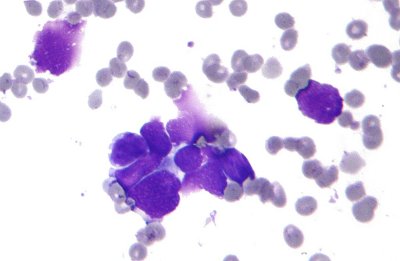
AbbVie and Bristol-Myers Squibb will jointly conduct a Phase I/II clinical trial of Rova-T (rovalpituuzumab tesirine) in combination with Opdivo (nivolumab) and Opdivo + Yervoy (ipilimumab) regimen to treat relapsed extensive-stage, small-cell lung cancer (SCLC).
Rova-T is AbbVie’s investigational antibody drug conjugate targeting the cancer-stem, cell-associated target, delta-like protein 3 that characterise SCLC tumours but do not occur in healthy tissues.

Discover B2B Marketing That Performs
Combine business intelligence and editorial excellence to reach engaged professionals across 36 leading media platforms.
Bristol-Myers Squibb’s Opdivo is a PD-1 immune checkpoint inhibitor that fuses with the checkpoint receptor PD-1 expressed on activated T-cells and inhibits the binding of PD-L1 and PD-L2, thereby blocking the PD-1 pathway’s interfering signals to the immunity system.
Yervoy is a CTLA-4 immune checkpoint inhibitor approved to treat patients with unresectable or metastatic melanoma.
The Phase I/II clinical programme has been designed to determine the efficacy of a combination of the immuno-oncology agent Opdivo with Rova-T.
The combination is expected to explore Rova-T’s targeted cell killing and antigen release to enhance the effect of immunotherapy.

US Tariffs are shifting - will you react or anticipate?
Don’t let policy changes catch you off guard. Stay proactive with real-time data and expert analysis.
By GlobalDataAbbVie research and development vice-president Scott Dylla said: “We believe the combination of these cancer-fighting agents may offer patients a new treatment option in a disease with limited therapies.
“By combining immune-checkpoint inhibitors that prime the body’s immune system to fight cancer cells with Rova-T’s approach to target cancer stem cells, we hope to build on our goal to develop differentiated treatments with therapeutic benefit that elevate the standard of care for small-cell lung cancer patients.”
Rova-T is currently being investigated as a third-line treatment for SCLC and AbbVie is also planning to begin a first-line clinical study for Rova-T in SCLC, along with several other types of tumours in the near future.
Image: Micrograph displaying small cell lung cancer. Photo: courtesy of Nephron.





